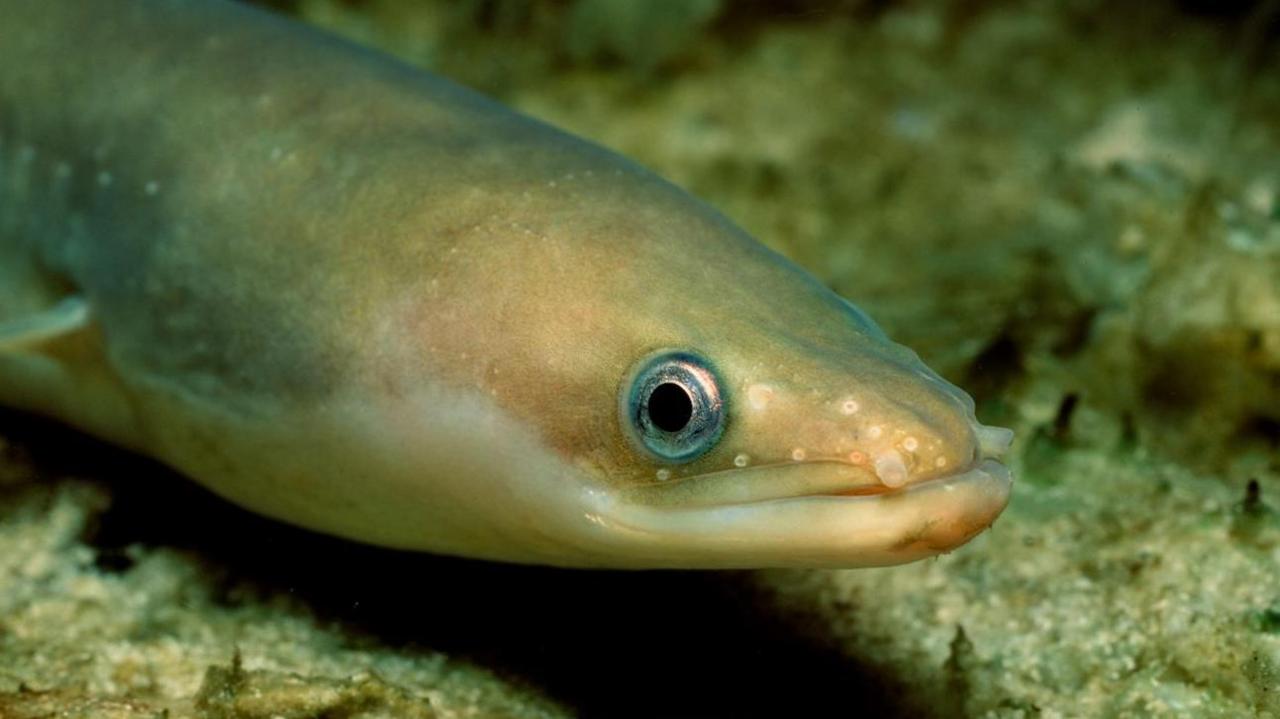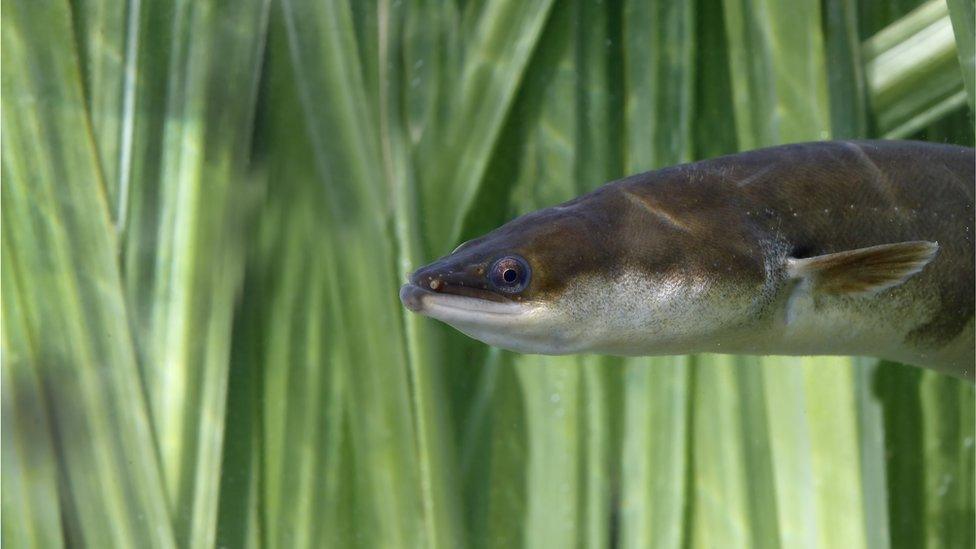Outdated pass to help eels migrate to be replaced

The European eel has suffered a dramatic decline in recent decades
- Published
A passage to help eels navigate a river is being replaced with a more modern version.
The European eel population has declined dramatically in recent decades due to habitat loss, overfishing and barriers which disrupt its long migration routes.
Eel passes, such as the one on the River Leven at Newby Bridge in Cumbria, act as ladders that allow the fish to swim up and over weirs and other barriers.
The Environment Agency (EA) said the current pass in the Leven no longer met modern standards for safety, remote monitoring, or water management.
It is now being removed and a new one constructed, which is due to be fully operational by spring.
Each autumn, eels leave European rivers to travel across the Atlantic Ocean to breed for a single time, then die.
At the heart of the eel pass improvements is a float switch-controlled pump, which activates during low water flows to help eels move through, making sure they can continue to migrate even in challenging conditions.
When water levels rise, the float switch automatically stops the pump, which will allow migrating eels to use the natural river flow, the EA says.
During periods of high flow, the design allows for natural self-cleaning, reducing the need for manual maintenance and helping to maintain higher water quality standards.
The EA's Francis Frimpong said: "This new eel pass is another step forward in improving river connectivity and enhancing biodiversity.
"By enabling eels to navigate past man-made barriers, we're helping to restore their natural migratory routes and strengthen their numbers for the future."
Follow BBC Cumbria on X, external, Facebook, external, Nextdoor and Instagram, external.
Get in touch
Do you have a story suggestion for BBC Cumbria?
Related topics
- Published15 October 2022

- Published30 May
